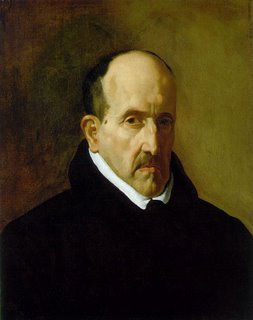 RETRATOS DE TRABALHO XIV - Lord Balfour
RETRATOS DE TRABALHO XIV - Lord Balfour"Sargent’s portrait of Balfour, shown below — an elegant figure, languid, etiolated, arrogant — illustrates brilliantly the popular conception of this complex statesman. Like most popular conceptions it tells only part of the story; like most popular conceptions it is substantially correct. To say that Balfour lacked the common touch is an understatement: he lacked the middle-class touch, he lacked even the upper-middle-class touch. He would have viewed the Forsytes with mild disdain; the rich industrialists of the Midlands and North, who every year played a more significant role in Conservative affairs, were an alien breed. He was happy to sit in Cabinet with Joseph Chamberlain; he would, if necessary, have been prepared to serve under him, but he never thought of him as a friend, let alone an intimate. Wit, intellectual finesse, aesthetic sensibility, were all of the first importance: he would not have claimed that such qualities were invariably associated with aristocratic lineage, but he must have felt that remarkably often this would prove to be the case.
At first everything was made easy for him. He had been endowed by nature with high intelligence, charm, good looks and good health. He was the eldest son of parents of immense wealth and impregnable social standing. ‘I had at that time no chosen profession,’ he wrote; ‘I had, indeed, no dominant occupation, unless I may apply this honourable description to the habit of miscellaneous reading …. or to the meditations intermittently pursued, though never abandoned, on the best way of giving effect to my philosophic ambitions.’ But because he was the much loved nephew of the great Marquess of Salisbury, Eton and Cambridge led in the end inevitably to politics. When in 1874 he was offered what was as nearly a rotten borough as could be found in Britain, he accepted it as his due. All that he lacked among those things that are generally felt to conduce to perfect happiness was a wife. This deficiency he felt no inclination to repair. Though he relished the company of clever and beautiful women he was, in Curzon’s phrase, ‘a tepid though charming lover’. He was, indeed, incapable of any strong passion, whether personal or political. The blood that pulsed behind that ever-so-distinguished façade was blue enough, but it ran thin and cool..."
At first everything was made easy for him. He had been endowed by nature with high intelligence, charm, good looks and good health. He was the eldest son of parents of immense wealth and impregnable social standing. ‘I had at that time no chosen profession,’ he wrote; ‘I had, indeed, no dominant occupation, unless I may apply this honourable description to the habit of miscellaneous reading …. or to the meditations intermittently pursued, though never abandoned, on the best way of giving effect to my philosophic ambitions.’ But because he was the much loved nephew of the great Marquess of Salisbury, Eton and Cambridge led in the end inevitably to politics. When in 1874 he was offered what was as nearly a rotten borough as could be found in Britain, he accepted it as his due. All that he lacked among those things that are generally felt to conduce to perfect happiness was a wife. This deficiency he felt no inclination to repair. Though he relished the company of clever and beautiful women he was, in Curzon’s phrase, ‘a tepid though charming lover’. He was, indeed, incapable of any strong passion, whether personal or political. The blood that pulsed behind that ever-so-distinguished façade was blue enough, but it ran thin and cool..."
Philip Ziegler The Spectator 5.12.07, sobre R.J.Q. Adams, Balfour: The Last Grandee


<< Home